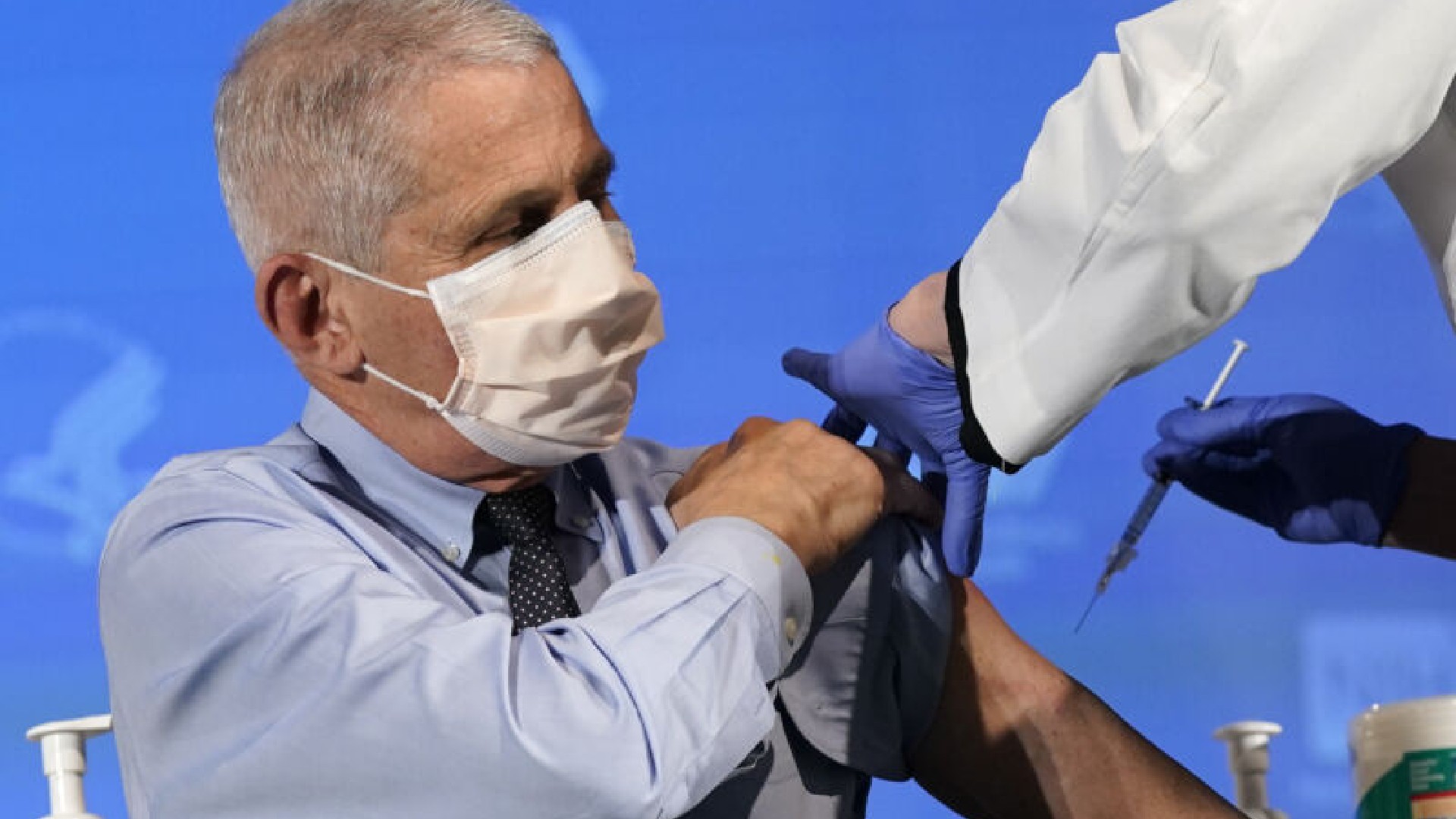As COVID-19 vaccination efforts continue across the United States, many are wondering how long protection from the shots might last. And if protection is relatively short-lived, what does that mean for the years ahead? Will we need boosters? Will COVID-19 vaccines become an annual jab like the seasonal flu shot?
In back-to-back public interviews, top infectious disease expert Anthony Fauci provided the current outlook based on the latest data. Boosters are looking likely, but it’s still unclear when we’ll need them, with current speculation landing in the range of a year or so after previous vaccination. Whether we’ll need them every year seems, for now, dependent on how many people get vaccinated this year.
Speaking at an Axios virtual event Wednesday, Dr. Fauci emphasized that “we don’t know exactly when” a booster will be required. We know that the current vaccines remain protective for at least six months—“and likely considerably more,” Fauci added.
“But I think we will almost certainly require a booster sometime within a year or so after getting the primary [vaccination],” Fauci said, “because the durability of protection against coronaviruses is generally not lifelong.” Here, Fauci is referring to what we know of immunity to four coronaviruses that regularly circulate in people and generally cause colds. Studies have suggested that protective immunity from these coronaviruses lasts about a year.
Pfizer CEO Albert Bourla, who was also part of the Axios event, echoed that boosters are likely in our future. But he too emphasized that the discussion of timing is “a little bit preliminary” given that clinical trials measuring vaccine protection over time are still ongoing. Still, he reiterated an estimate he had given publicly before, saying he thinks it is “likely there would be a need for a booster somewhere between eight and 12 months.” But, he went on, the timing “remains to be seen, and I believe in one, two months we will have enough data to speak about it with much higher scientific certainty.”
In a Washington Post Live event Thursday, Fauci pushed back on specific month estimates. “I really don’t think it’s accurate to say that we will need boosters X number of months from now. We may not need it for quite a while,” he said. “I think we better be careful not to let the people know that, inevitably, X number of months from now, everyone is going to need a booster. That’s just not the case.”
Seasonal shots
Seasonal shots are also not inevitable, Fauci said at the event Thursday, though it’s hard to predict how things will play out.
Looking to the future, Fauci outlined three potential outcomes for the virus: eradication, elimination, or control. Eradication means we would wipe the pandemic coronavirus off the planet, except for some historic samples preserved in a deep freezer. Despite many vaccines’ success, the only human pathogen we have successfully eradicated is smallpox. So reaching eradication for the pandemic coronavirus, SARS-CoV-2, would be “a very high bar,” Fauci noted.
Elimination, on the other hand, refers to when an infectious disease is eliminated from a specific area or country, meaning there’s no longer sustained transmission, though there may be contained outbreaks sparked from imported cases (for instance, polio was eliminated from the US in 1979). Last is control, in which vaccination and other factors drive down transmission to very low levels but sustained transmission continues (think diarrheal diseases). It’s “not enough to be a public health issue but enough to know that you haven’t completely eliminated it,” Fauci said.
While the potential for future coronavirus variants always presents a wild card, the closer we can get to elimination, the less likely it will be that everyone needs to get annual COVID-19 shots, Fauci suggested. But for now, “we don’t know where we’re going to be with SARS-CoV-2 and with COVID-19. I would hope it would be much closer to elimination than just control,” he said. But “that’s going to depend entirely on the success… of the vaccine program.” The more people who get vaccinated, the more we lean toward elimination rather than just control, he explained. “And that’s the reason why we continue to push to get those people who are reluctant to get vaccinated, to, in fact, get vaccinated.”
